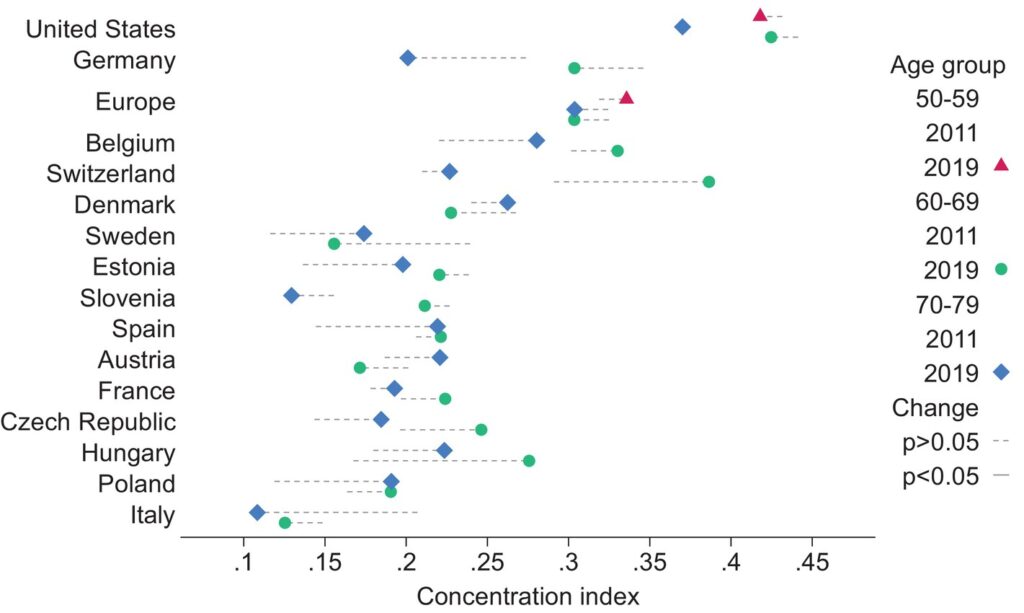Health and wealth

Are wealthier people healthier? If so, how strong is this relationship? Does it vary across countries?
That is what a paper by Kyriopoulos et al. 2024 aims to answer. They measure health and wealth using a “concentration index” (CI) which is calculated as follows:
CI is estimated with reference to the concentration curve, which illustrates the cumulative percentage of a health status variable in relation to the cumulative percentage of the population, with individuals ranked from the least wealthy to the wealthiest. In particular, CI is twice the area between the concentration curve and the 45-degree line of equality, with zero values reflecting the absence of socioeconomic inequality in health. Contrary to the Gini index, CI quantifies inequality in one variable (i.e., health) based on its ranking relative to another (i.e., socioeconomic measure). A positive CI denotes that heath is more concentrated among wealthiest individuals, with higher index values reflecting greater levels of pro-rich inequality.
The specific version of CI used comes from Wagstaff 2005. Wealth is measured using non-housing wealth (although a sensitivity analysis uses total wealth including housing) and health is measured using self-reported health status on a 5-point scale (i.e., poor, fair, good, very good, excellent). To estimate CI, they use data from the Health and Retirement Survey (HRS) in the US and Survey of Health, Ageing, and Retirement in Europe (SHARE) in Europe.
Using this approach, they find:
…evidence of wealth-related inequalities in self-reported health status across several high-income countries, with the US demonstrating higher levels of inequality than its European counterparts. The magnitude of these inequalities with respect to wealth remained unchanged over the study period across all countries.
https://onlinelibrary.wiley.com/doi/full/10.1111/1475-6773.14366
You can read the full paper here.







